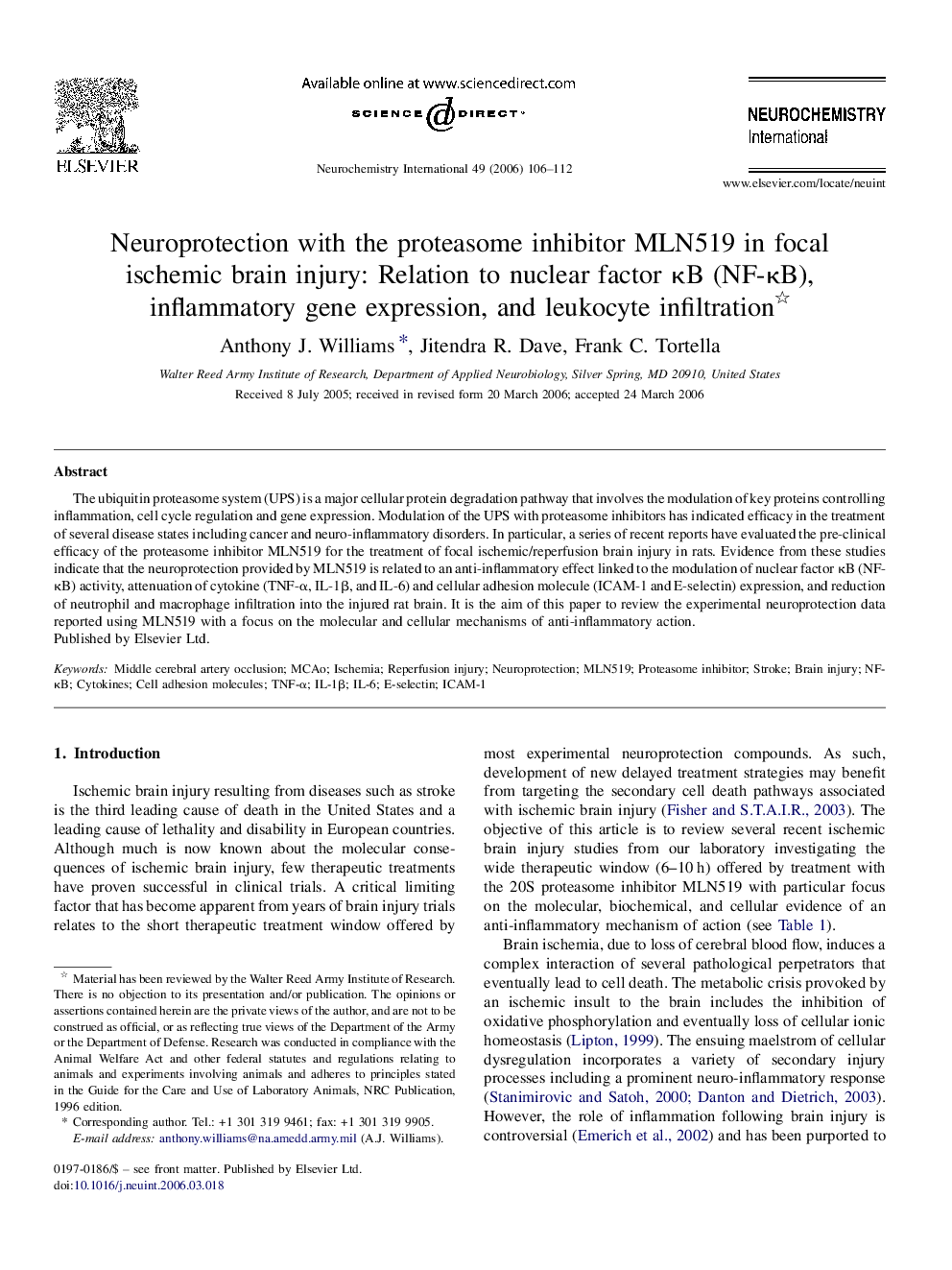| Article ID | Journal | Published Year | Pages | File Type |
|---|---|---|---|---|
| 2202293 | Neurochemistry International | 2006 | 7 Pages |
The ubiquitin proteasome system (UPS) is a major cellular protein degradation pathway that involves the modulation of key proteins controlling inflammation, cell cycle regulation and gene expression. Modulation of the UPS with proteasome inhibitors has indicated efficacy in the treatment of several disease states including cancer and neuro-inflammatory disorders. In particular, a series of recent reports have evaluated the pre-clinical efficacy of the proteasome inhibitor MLN519 for the treatment of focal ischemic/reperfusion brain injury in rats. Evidence from these studies indicate that the neuroprotection provided by MLN519 is related to an anti-inflammatory effect linked to the modulation of nuclear factor κB (NF-κB) activity, attenuation of cytokine (TNF-α, IL-1β, and IL-6) and cellular adhesion molecule (ICAM-1 and E-selectin) expression, and reduction of neutrophil and macrophage infiltration into the injured rat brain. It is the aim of this paper to review the experimental neuroprotection data reported using MLN519 with a focus on the molecular and cellular mechanisms of anti-inflammatory action.
